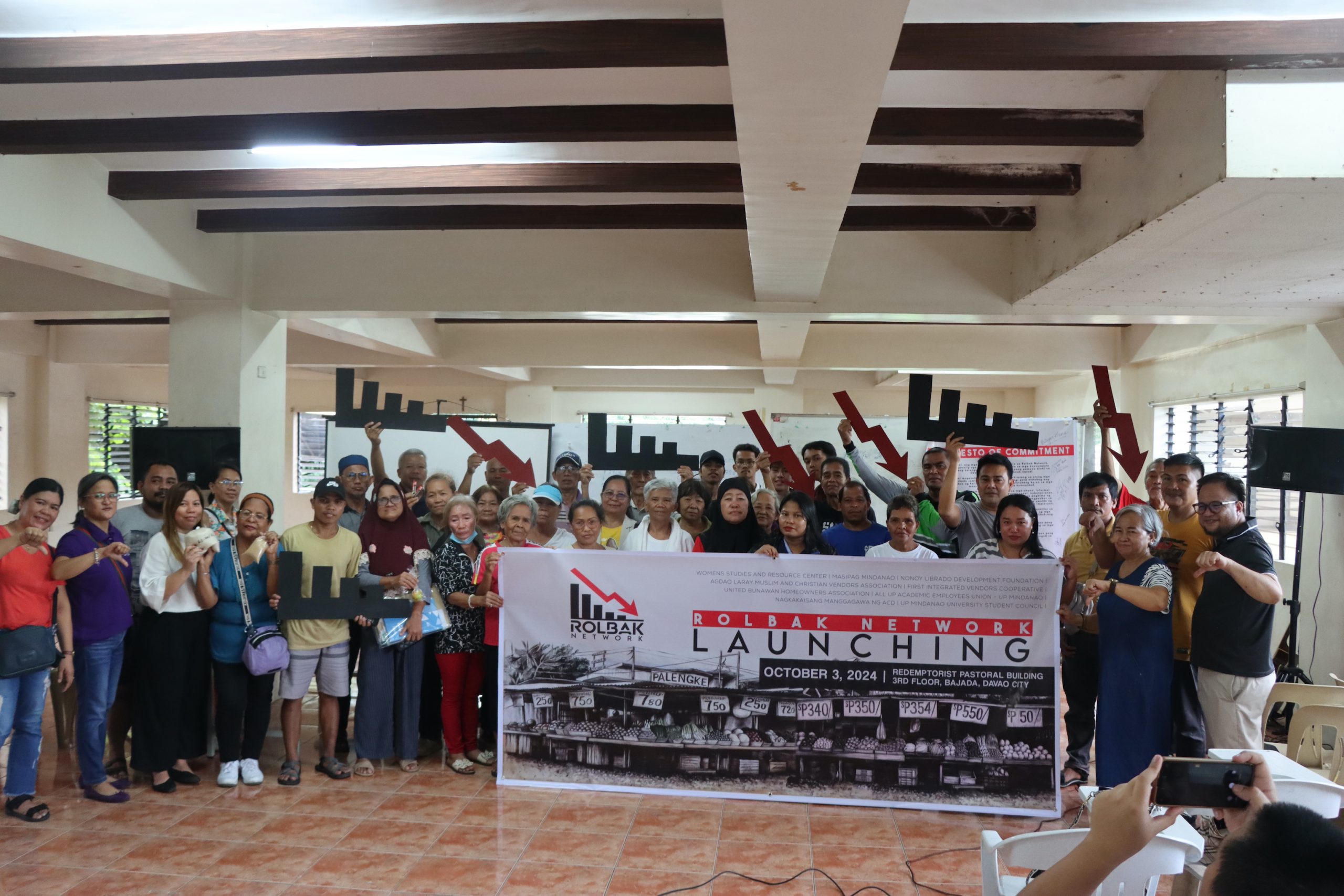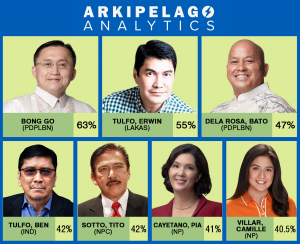A NEW alliance called the Rolbak Network was launched on Oct. 3 to address the worsening economic situation in the Philippines, particularly the alarming increase in electricity and oil prices that has triggered a cascade of price hikes across basic commodities.
The Rolbak Network, a collaboration of academics, economists, community leaders, and concerned citizens, has emerged in response to documented evidence of unprecedented price increases affecting Filipino families. Data collected by the network shows that from December 2021 to August 2024, essential commodities have seen dramatic price surges: cooking oil increased by 110%, pork by 56.38%, brown sugar by 53.33%, and well-milled rice by 29.79%.
“Ang atong katawhan nag-antos na sa taas kaayo nga presyo sa kuryente ug langis (Our people are already suffering from the extremely high prices of electricity and oil. This situation requires immediate action and reform of our laws),” stated Hermie Escalante, board chairperson of Women Studies and Resource Center and lead convenor of the Rolbak Network.”
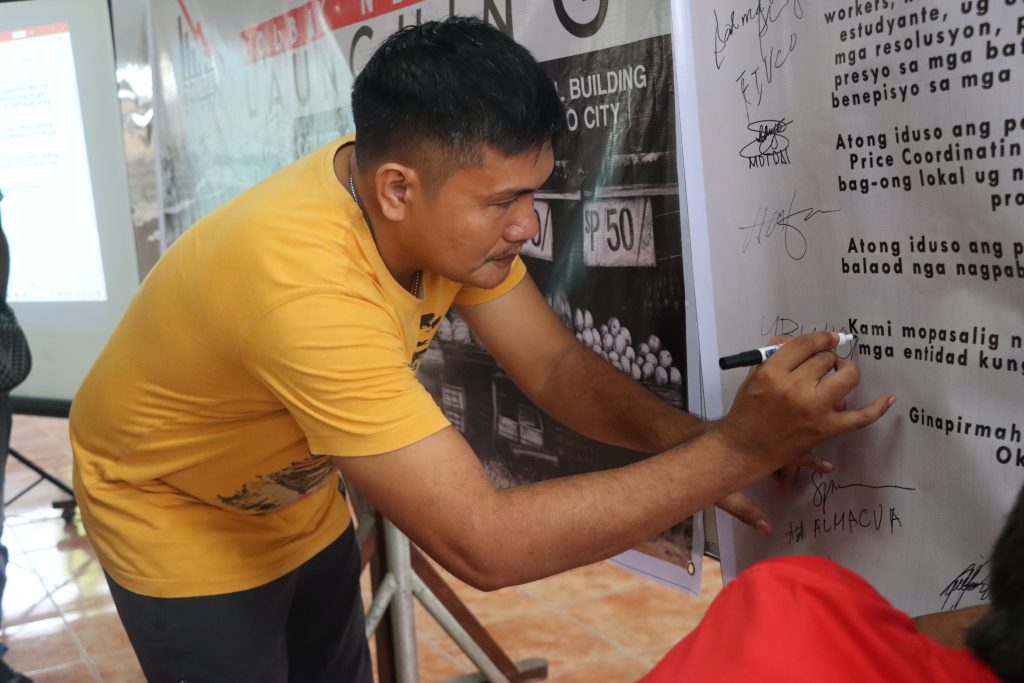
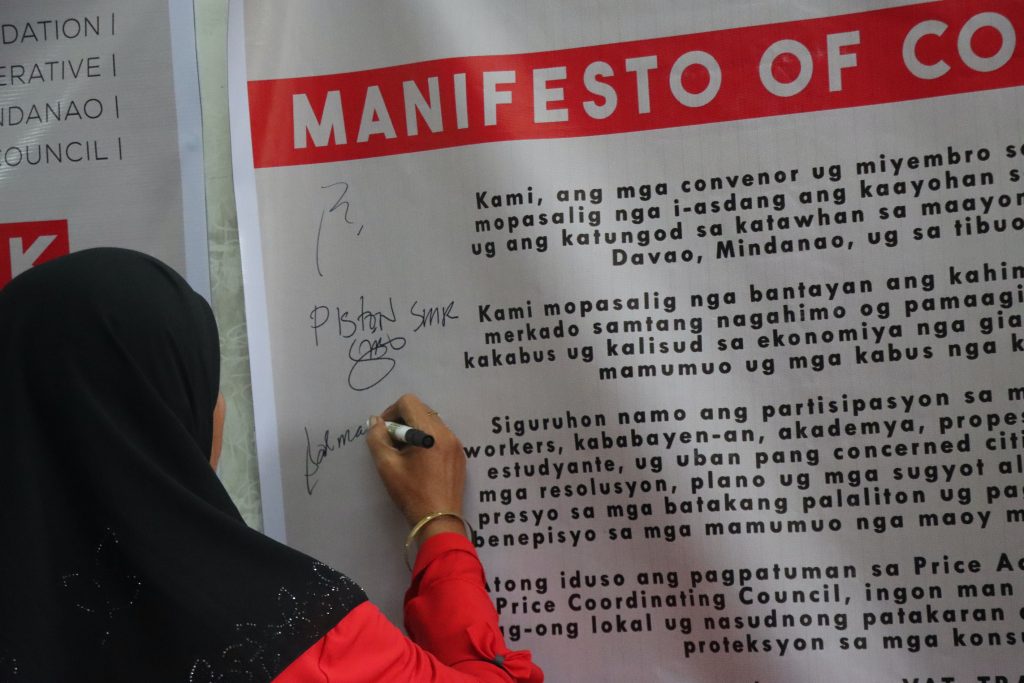
Analysis and policy focus
The network has identified the Electric Power Industry Reform Act (EPIRA) and the Oil Deregulation Law as primary factors behind unchecked price increases. Their analysis shows how the privatization of the energy sector has left consumers vulnerable to market manipulation and corporate interests, resulting in persistent instability and escalating costs.
“The privatization of our energy sector has failed to deliver its promised benefits,” Escalante explained. “Instead, it has subjected our people to the whims of private corporations, leading to unreliable supply and increasingly unaffordable rates.”
Rachel Servilla, president of Agdao Laray Muslim and Christians Vendors Association, highlighted the devastating impact on small vendors and marginalized communities: “Ang among mga miyembro halos dili na makakaya. Kada adlaw, nagakadako ang among galastuhan sa paninda pero dili mi makataas og presyo kay malugi mi sa among customers. Daghan na ang nanira sa ilang tindahan (Our members can barely cope anymore. Every day, our operating costs increase, but we can’t raise our prices or we’ll lose our customers. Many have already closed their stores),”
“Nanawagan mi sa gobyerno ug sa tanan nga makatabang. This is no longer just about business – this is about survival. Our families are going hungry, our children are being forced to stop schooling, and our communities are falling deeper into poverty,” Servilla added, emphasizing the urgent need for immediate intervention and systemic change.
Crisis in food security and agriculture
The network’s analysis reveals a particularly alarming situation in rice prices, with well-milled rice increasing from ₱43 per kilo in December 2021 to ₱57-60 per kilo in August 2024 – a staggering increase of more than 39% that has severely impacted food security for Filipino families.
Leo XL Fuentes, MASIPAG regional coordinator, pointed to systemic issues in agricultural policy: “Our agricultural crisis stems from decades of misguided policies that have made our food system export-oriented yet import-dependent. The Rice Liberalization Law has been particularly devastating, leaving our farmers at the mercy of foreign imports while failing to deliver its promised benefits to consumers.”
“The reality on the ground is clear,” Fuentes added. “While our farmers struggle with high production costs and low farm gate prices, consumers are paying more than ever for rice. This paradox exposes the fundamental flaws in our agricultural policies. We need a shift towards food sovereignty and sustainable local production, not further liberalization that only benefits large agricultural corporations.”
Comprehensive strategy
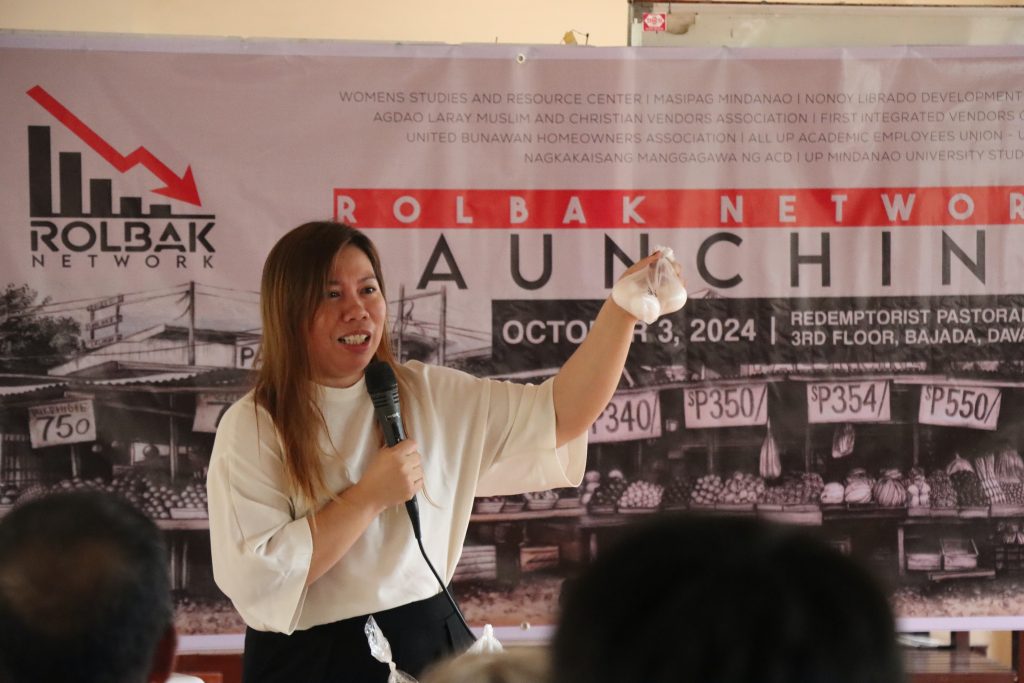
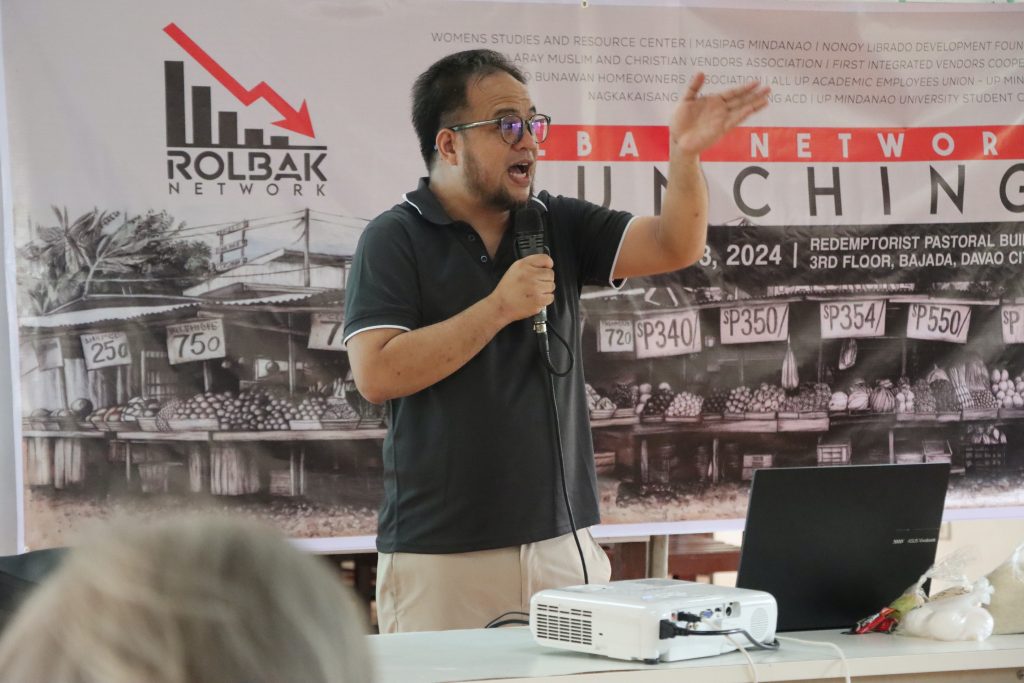
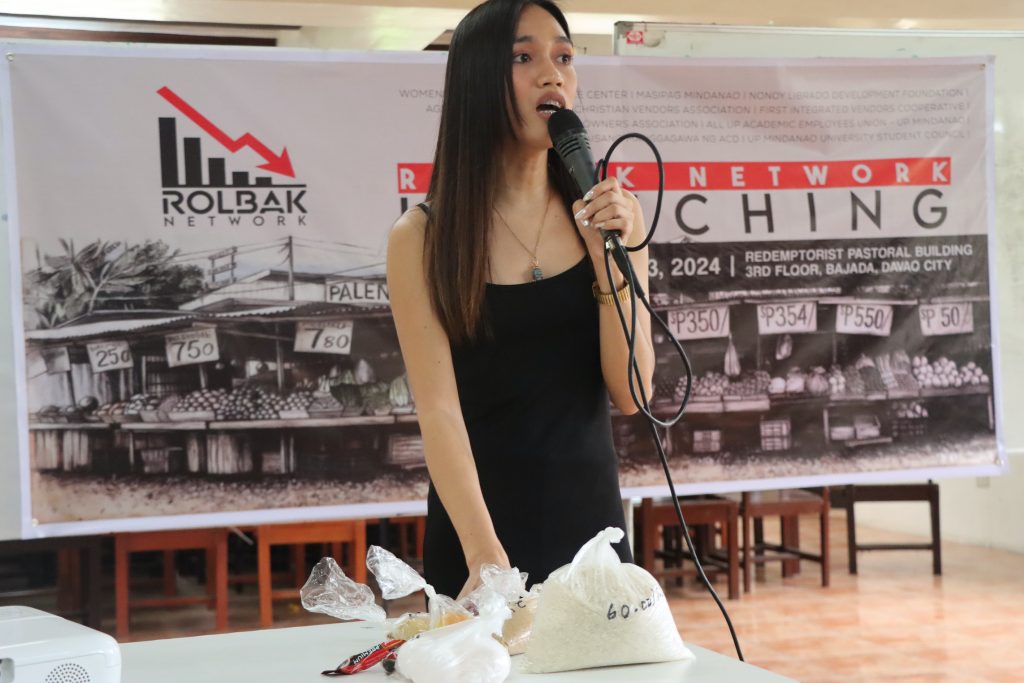
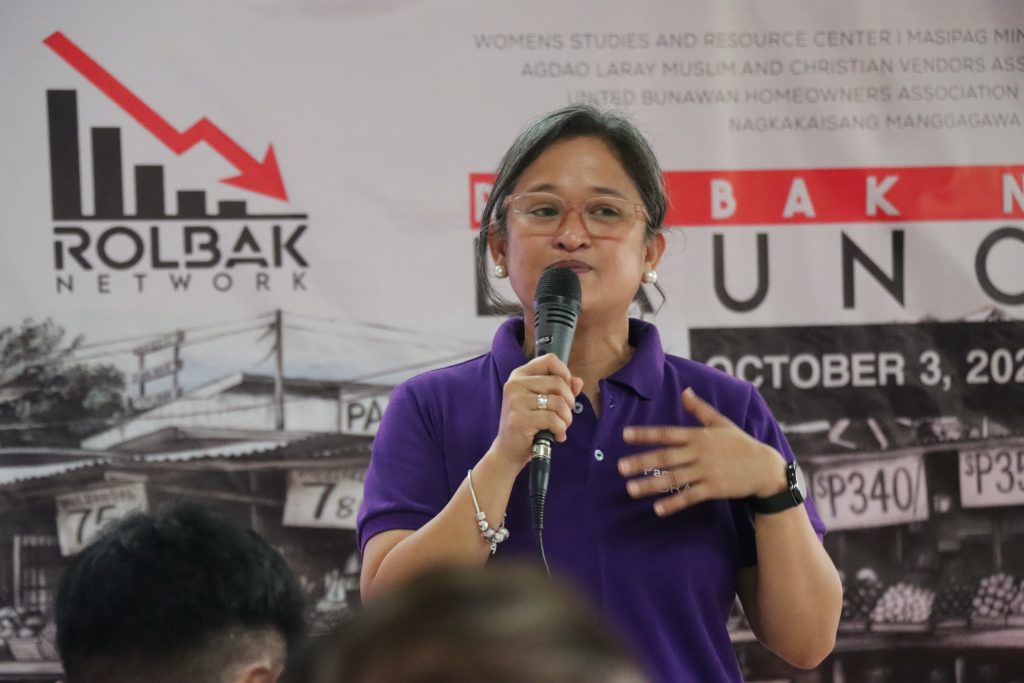
The Rolbak Network has developed a research-based approach to address these economic challenges:
1. Price Monitoring and Analysis: Implementation of a systematic nationwide price monitoring system, with regular publication of comprehensive reports on price trends and their socioeconomic impacts.
2. Policy Reform Advocacy: Push for:
- Immediate repeal of VAT and excise taxes on fuel, potentially providing relief of ₱27 per liter
- Mandatory unbundling of oil prices for transparency
- Establishment of a National Petroleum Exchange Corporation
- Strategic review and reform of EPIRA
3. Economic Democracy Initiatives:
- Support for small-scale agricultural producers
- Development of community-based economic alternatives
- Promotion of cooperative enterprises
- Advocacy for the establishment of state-owned energy enterprises
- Implementation of protective measures for local rice farmers and development of sustainable local rice production systems to ensure food security
4. Public Education Campaign: Launch of an extensive education program on economic issues, focusing on:
- Understanding energy pricing mechanisms
- Impact of deregulation on consumer prices
- Alternative economic models and solutions
Evidence-based findings
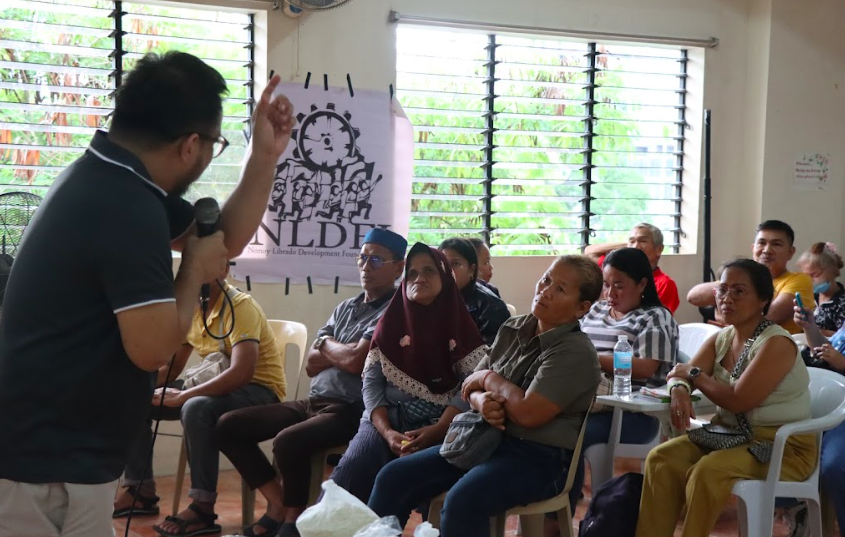
The network’s research has documented significant price increases across basic commodities from December 2021 to August 2024:
– Essential Food Items:
– Fish (Galunggong): ₱130 to ₱153/kg (+17.69%)
– Eggs (Large): ₱200 to ₱240/tray (+20%)
– Onions: ₱127 to ₱157/kg (+23.62%)
– Garlic: ₱120 to ₱170/kg (+41.67%)
– Basic Necessities:
– Instant Noodles: ₱8 to ₱9/pack (+12.50%)
– Canned Sardines: ₱16 to ₱18/can (+12.50%)
– Coffee (3-in-1): ₱6 to ₱7/pack (+16.67%)
Future actions
The Rolbak Network announces the following immediate initiatives:
- Launch of a comprehensive “Price Watch” database and monitoring system
- Organization of community-based economic education forums
- Formation of research clusters to study alternative economic models
- Development of policy papers on energy sector reform
- Establishment of partnerships with similar advocacy groups nationwide
“Gusto namo nga mahimong venue ang Rolbak Network aron masabtan sa mga estudyante ug sa tibuok publiko ang tinuod nga kahimtang sa atong ekonomiya (We want the Rolbak Network to become a venue for students and the general public to understand the true state of our economy and actively participate in finding solutions),” added Prof. Glory Dee Romo, a professor from University of the Philippines Mindanao.
The Rolbak Network invites all sectors of Philippine society to join their evidence-based campaign for economic justice and systemic change.

